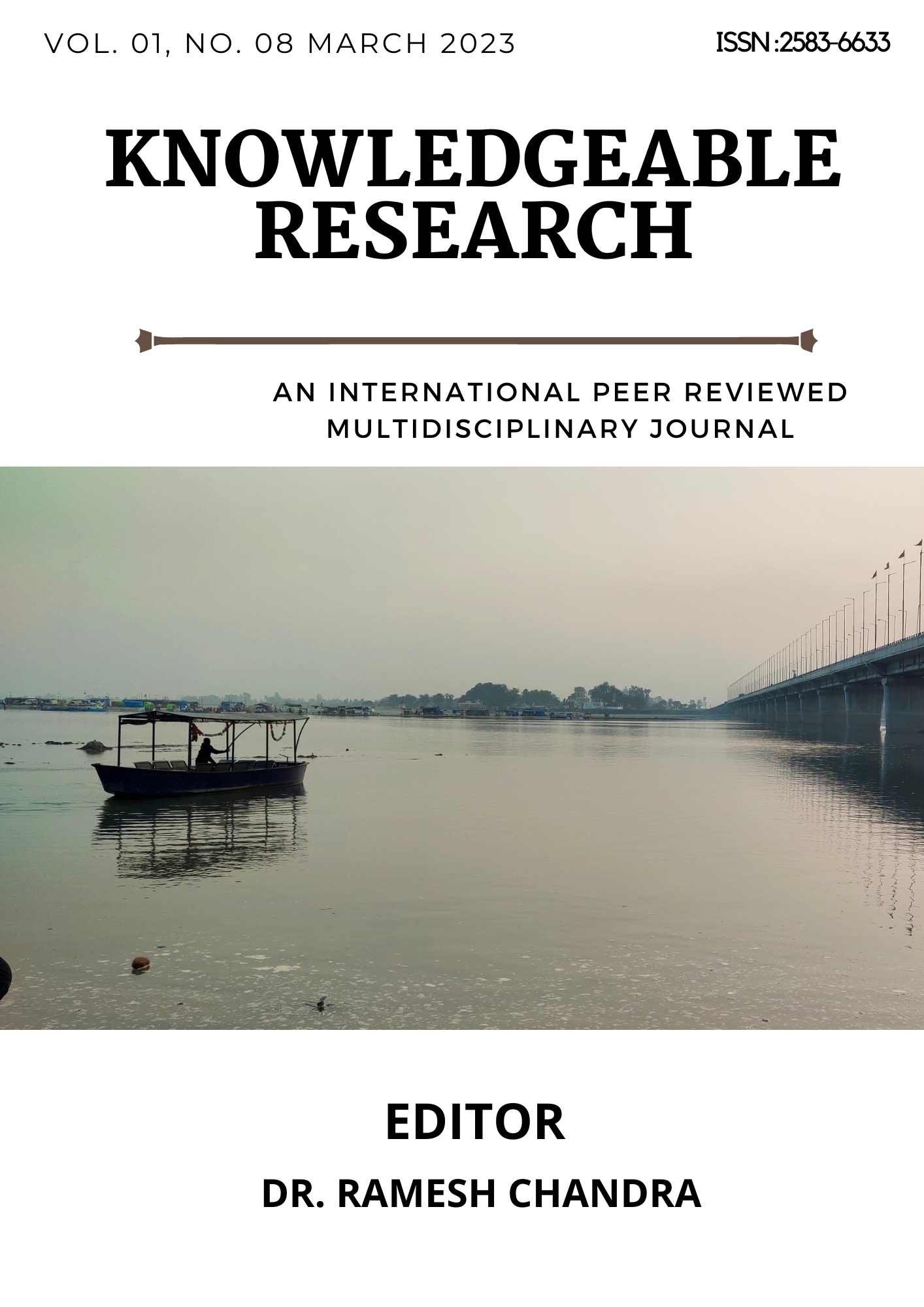Rebellion of Tribe Koya, Rampa or Manyam
Main Article Content
Abstract
The film, based on the story of South Indian cinema superstars Ram Charan and Junior NTR's film 'RRR', can be seen in the film based on the story of the British rule. It is being told that the film is based on the story of the life and rebellion of two revolutionaries Alluri Sitaram Raju and Komaram Bhima. In fact, during the British rule, the main focus of the British was to exploit the resources here. In this sequence, the Madras Forest Act of 1882 was introduced to exploit the forest resources and land here. With the help of this law, local forest dwellers were banned from using their own resources. The tribals were forbidden to cut trees for firewood. Due to this law, the tribal communities there were unable to cultivate under the 'Traditional Podu Krishi Krishi system'. Explain that the 'Podu Krishi system' is a kind of 'Jhoom farming'. So this way this forest law became the reason for Rampa's rebellion. Initially, the leaders of this rebellion, including Alluri Sitaram Raju and Komaram Bhima are prominent - used to use Gandhian methods of non -cooperation and civil disobedience. But when the deaf English government did not understand this language, these revolutionaries took up arms against colonial rule. Thus 'Rampa Rebellion', also known as 'Manyam Rebellion', was a tribal rebellion launched at the Godavari branch of the 'Madras Presidency under British India. It started in August 1922 and continued till imprisonment and was killed in May 1924.
Article Details

This work is licensed under a Creative Commons Attribution-NonCommercial-NoDerivatives 4.0 International License.
References
Sumit Sarkar, Modern India, 1992,
Bipin Chandra-Indias freedom struggle, 1990,
David Arnold: Ribelius: The Gudem Rampa Rebellion: 1839-24, Ranjit Guha (Editor), Subaltern Studies, Oxford, 1982, 1982,
David Arnold, Robbery and Rural Crime in Madras, 1860-1940, Journal of Pagent Studies January 1979
David Arnold: Rebelius Hillman: The Gudem Rampa Rebellion: 1839-24 Ranjit Guha (Editor), Subaltern Studies, An Oxford, 1982,
